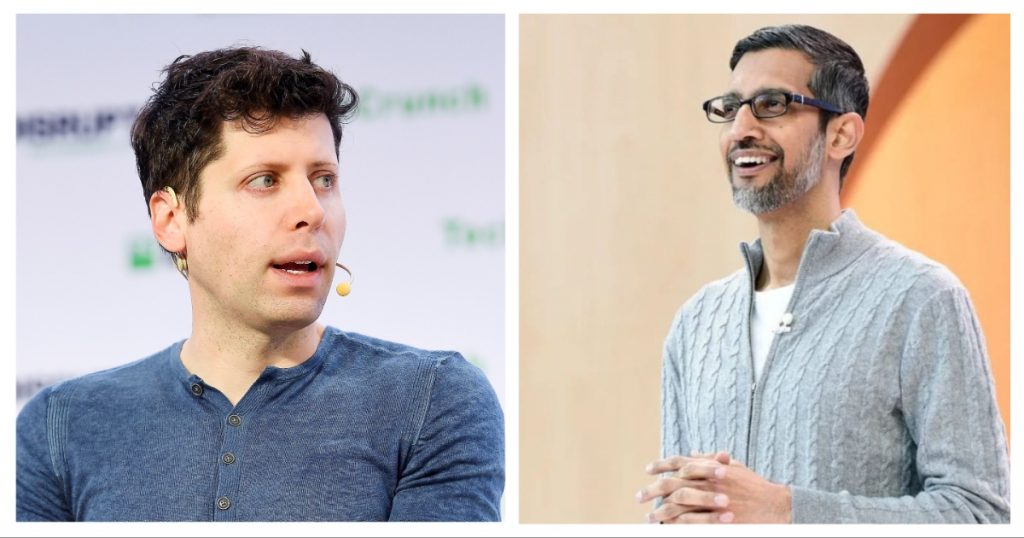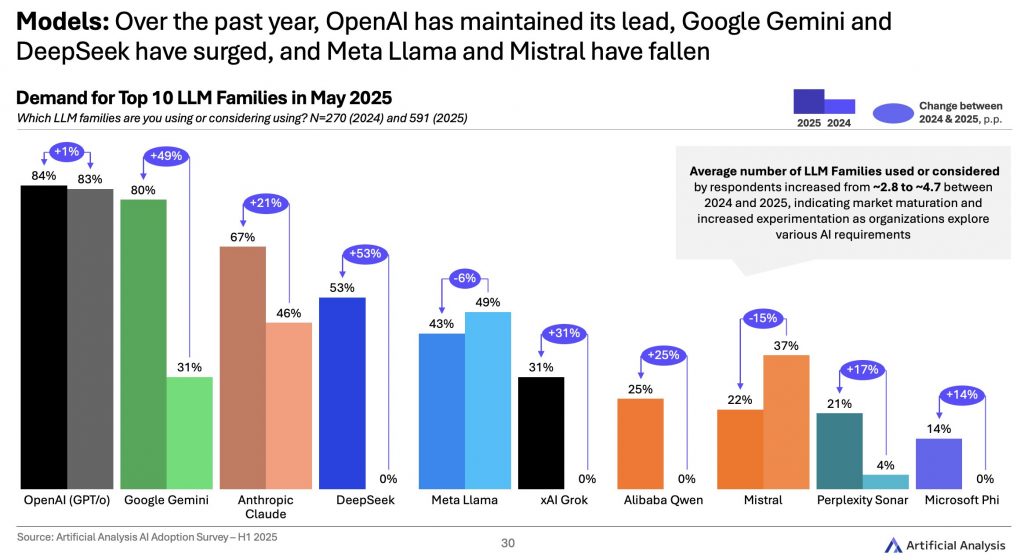Google had been off to a slow start in the AI race, but it seems to now to be hitting its stride.
Google’s Gemini has seen a 49 percentage point increase in demand over the last year, a report from Artificial Analysis has said. In comparison, OpenAI’s models only saw a 1 percentage point increase over 2024. This means that OpenAI and Gemini are neck-and-neck among models users consider using.

The report asked 270 respondents in 2024 and 591 respondents in 2025 as to which LLM families were they were using or had considered using. A whopping 83 percent of respondents in 2024 had said that they were using or had considered using OpenAI’s GPT or o series of models. This number increased to 84 percent in 2025. On the other hand, only 31 percent of respondents had said that they had considered using Gemini in 2024, but this number rose 49 percentage points to 80 percent in 2025. This meant that at 80%, Gemini was right behind OpenAI, which was at 84%, among AI models that users were considering using in 2025.

In third place came Anthropic’s Claude series of models. These models too saw an increase in popularity, rising from 46% in 2024 to 67% in 2025. Fourth was Meta’s llama, but unlike the top three, it saw it popularity decrease over the last year. In 2024, 49 percent users had considered using Llama, but this fell to 43 percent in 2025. Meta’s Llama 4 was widely viewed as a failure, and fell behind many Chinese and other open-source models on benchmarks.
In fifth place was Grok, which had just released Grok4, which smashed most benchmarks. Grok had started from zero — it hadn’t been released in 2024, but 31 percent of respondents in 2025 said they’d consider using it. Alibaba’s Qwen was the sixth model on the list. Like Grok, it had no takers in 2024, but saw 25 percent people willing to try it in 2025. The last 3 spots were taken up by Mistral, Perplexity Sonar, and Microsoft Phi.
The big story, however, is Google’s rapid rise on the charts. There have been other indications that Google has been coming into its own — Gemini had pulled ahead of ChatGPT in app downloads in May, and traffic on Gemini’s website had grown 3x faster than ChatGPT in the first six months of the year. Google had been thought to be asleep at the wheel with AI — the company had published the seminal “Attention is all you need” paper in 2017, but was beaten to market by OpenAI when it released ChatGPT in late 2022. Google lagged ChatGPT by a distance in 2023 and 2024, but now seems to be close to catching up. It’s produced the very capable Gemini 2.5 Pro model which beat OpenAI on many benchmarks, and has priced it very competitively. For once, Google also seems to be marketing its products, giving away Gemini Pro free to all Indian students for free for a year. And the combination of low cost and high performance, coupled with the Google brand name recognition, seems to have catapulted Google’s models right next to OpenAI’s in terms of user demand.